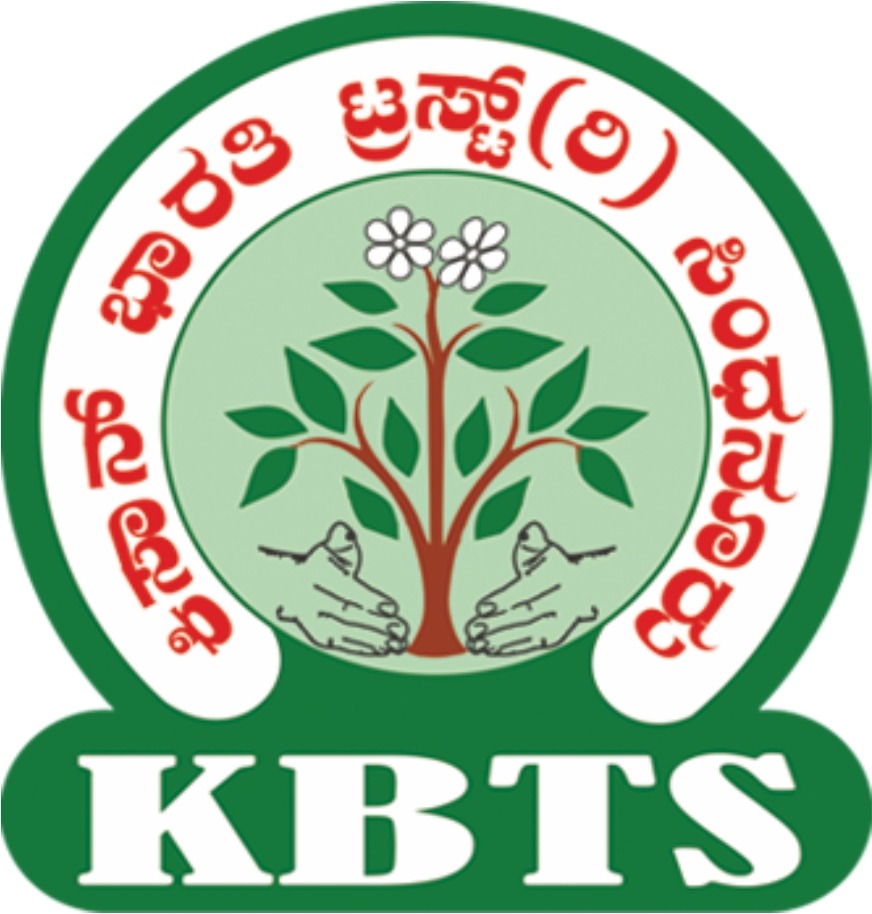Phone: +91 9886485444 || Email: kbts.snd@gmail.com || WhatsApp: +91 9482850113
Project Overview:
The Maski Taluka Tribal Development Fund (TDF) Project led by Kisan Bharathi Trust (KBT) Sindhanur aims to address the pressing agricultural challenges faced by tribal families in Maski Taluka. Traditional farming methods and unpredictable rainfall often result in limited productivity and financial loss, impacting basic family sustenance. Through comprehensive surveys and community engagement, KBT Sindhanur launched the Wadi Program under the guidance of NABARD Bangalore and District Development Manager (DDM) to promote sustainable agricultural practices, horticulture, forestry, and soil and water conservation.
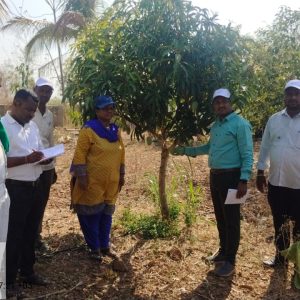
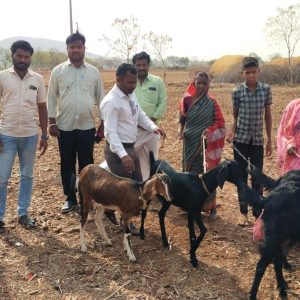
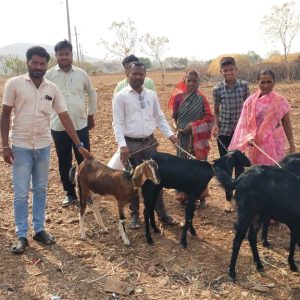
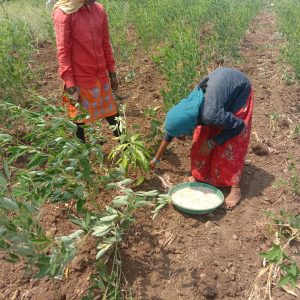
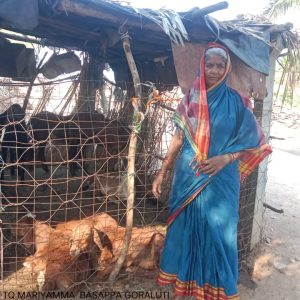
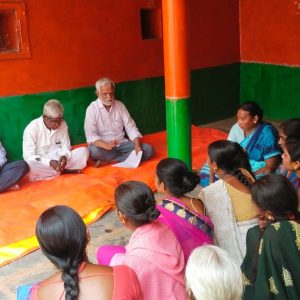
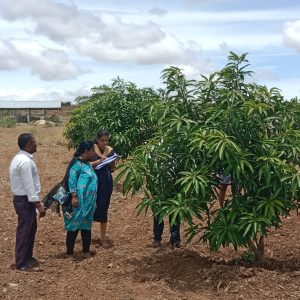
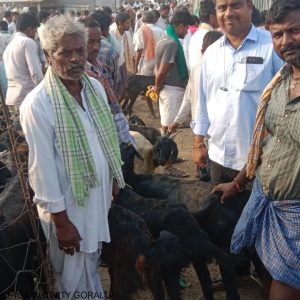
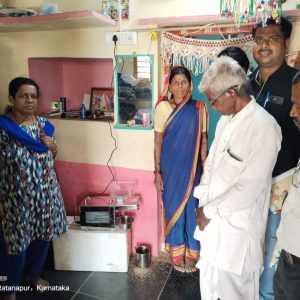

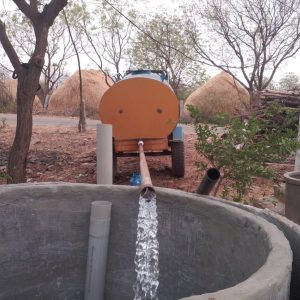
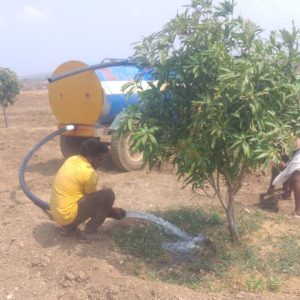
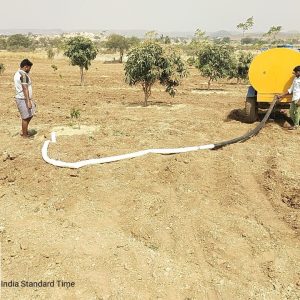
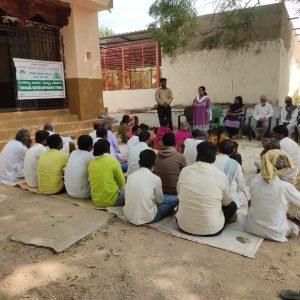
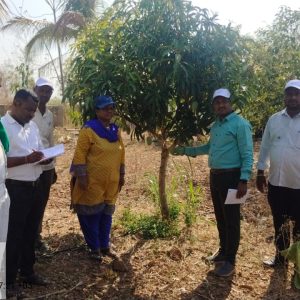
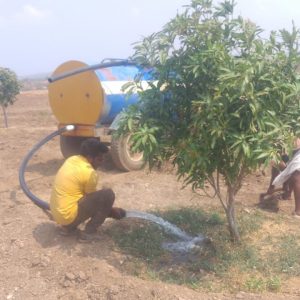
Phase-1: Wadis Assessment and Development Report
Wadi Establishment and Labor Impact
In the first phase of the Wadi Program, 125 wadis were successfully established across three villages. This phase focuses on forestry and horticulture plantations, benefiting local farmers while also providing substantial labor opportunities within the community.
Labor Days Generated:
Pitting Work (Horticulture & Forestry): 2,125 man-days.
Pit Filling and Planting Preparation: 250 man-days.
Fencing and Post-Planting Care: 2,038 man-days.
Total Labor Days: 4,413 man-days for 125 wadi participants, allowing families to earn income locally and reducing the need for external migration.
Soil and Water Conservation Report
As part of soil and water conservation efforts, 98 farmers undertook Trench Cum Bunding (TCB) work, achieving a 40 cubic meter average per wadi and completing 3,920 cubic meters of work overall. This initiative has created a sustainable water storage solution by capturing rainfall and enhancing soil retention.
- Rainfall and Water Storage: Following TCB work completion, Maski Taluka experienced three heavy rainfalls in 2021. These events allowed trenches to capture approximately 120,000 liters of water per wadi, accumulating a total of 1,176,000 liters across 98 wadis.
- Topsoil Conservation: Trenches retain essential topsoil during rains, which can later be spread over bunds to improve soil fertility and support crop growth.
- Waste Weir Construction: The project constructed 49 waste weirs, allowing excess rainwater to flow safely while retaining soil, thus preserving the bund integrity and enhancing soil and water conservation for around 50% of the wadis.
Crop Diversification and Income Enhancement
Prior to the TDF Project, farmers typically grew basic cereal crops like bajra, jowar, and cowpea. With the project’s initiation in 2021, farmers received training in improved agricultural practices, crop variety selection, and soil management. The project introduced them to high-yield vegetable varieties, floriculture, and new bajra strains, enhancing their productivity and income.
Enhanced Crop Yield:
With regular training and monitoring, 125 farmers adopted improved practices, resulting in a 20% increase in yield for about 100 farmers, while 25 farmers achieved stable yields.
Crop Distribution:
Bajra: 60 wadis
Vegetable Cultivation: 34 wadis
Green Gram & Beans: 14 wadis
Sunflower & Toor: 17 wadis
Horticultural Yield: Mango and Lemon Production
The 1st Phase of the Wadi Program also included the establishment of mango and lemon plantations, creating sustainable income sources and improving nutritional access for the participating families.
Mango Yield:
72 Wadis have shown excellent yield potential, with each mango plot producing an average of 180 kg of mangoes from 30 plants per wadi.
Estimated Income: At a rate of ₹150 per kg, each plot can generate up to ₹27,000, with 72 wadis collectively contributing to ₹19,44,000 in income. Additionally, this yield allows families to consume fresh mangoes without relying on market purchases.
Lemon Yield:
31 Wadis have initiated lemon yields with an average of 14 lemon plants per plot, each producing 110 fruits per plant.
Estimated Income: With a price of ₹2.5 per lemon, each plot can generate around ₹3,850, providing additional income and diversifying farm produce.
Forestry and Community Benefits
In addition to crop cultivation, approximately 80 wadi plots now support forestry species, which serve multiple purposes:
Fuel and Fodder: These trees offer a source of fuelwood and fodder for livestock.
Soil Enrichment: Trees provide organic manure and shade, supporting soil health and livestock wellbeing.
Sustainable Farming Realization: Farmers now understand the long-term benefits of Wadi plots, contributing to community stability and environmental sustainability.
